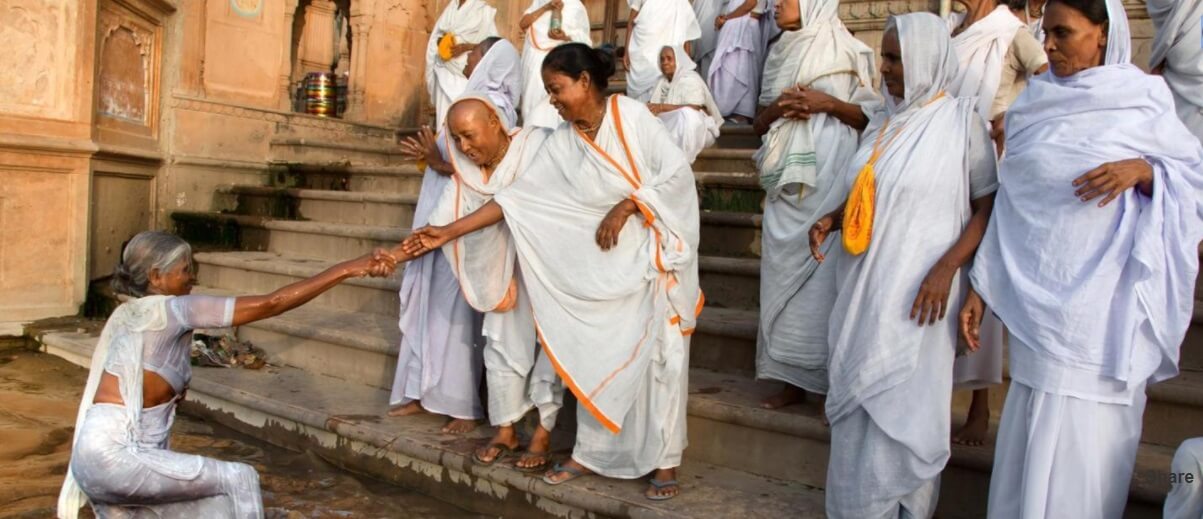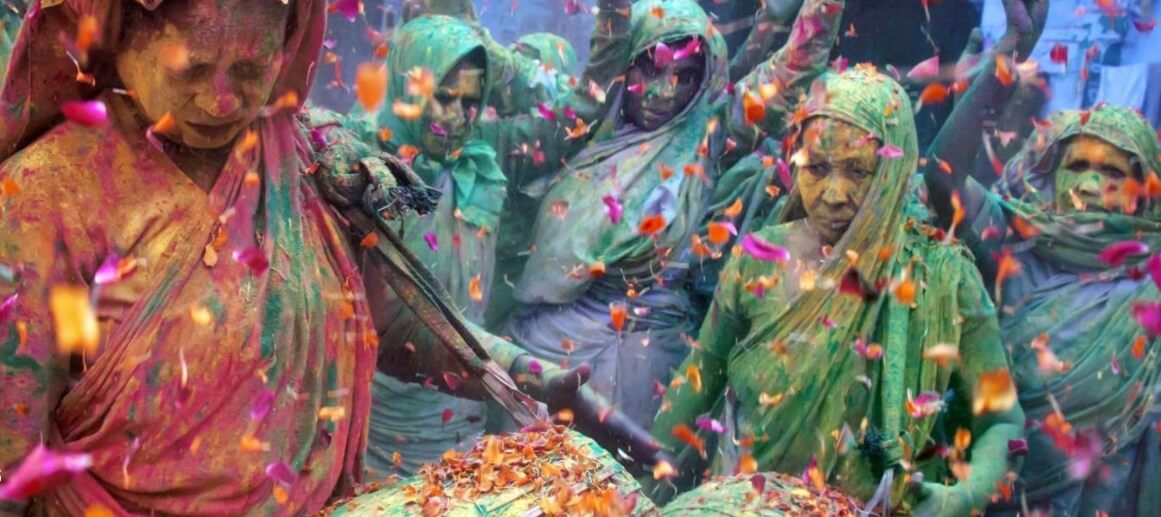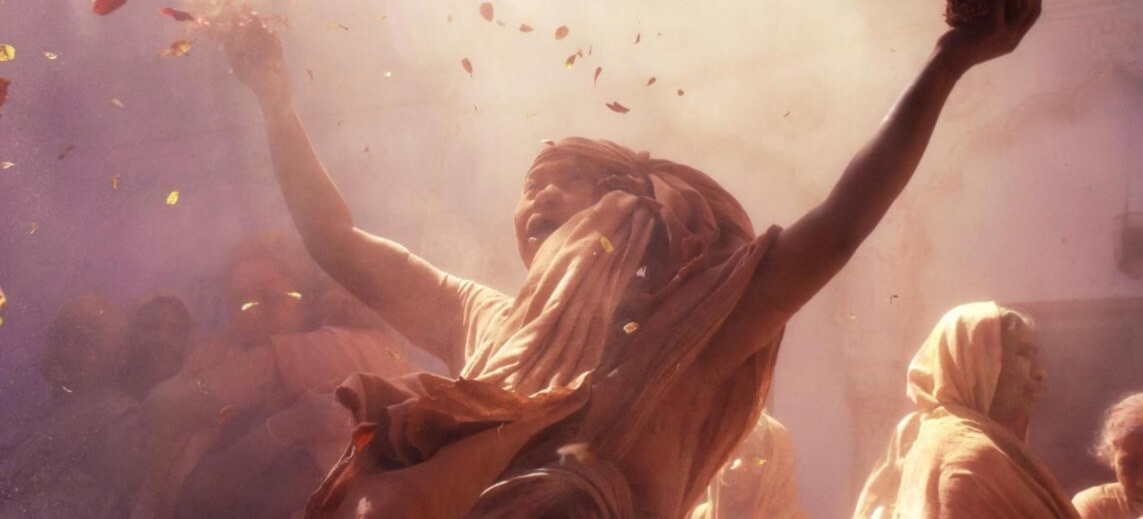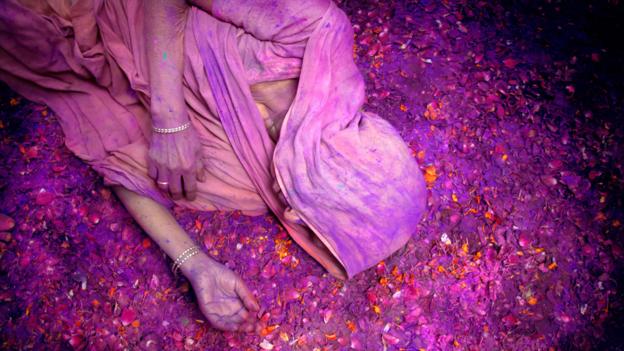The widows who can’t return home
Nowhere to go, nowhere to hide
Some of the most conservative Hindus in India believe that a woman whose husband has died should no longer live because she failed to retain his soul. Rejected by their communities and abandoned by their loved ones, thousands of destitute women make their way to Vrindavan, a pilgrimage city about 100km south of Delhi that is home to more than 20,000 widows.
These women have no choice but to live in a vidhwa ashram (ashrams for widows) run by the government, private enterprises and NGOs. Clad in white, they know they will never return home and that this is where they’ll end their days.
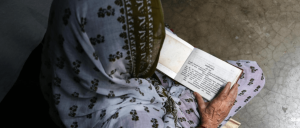
United we stand
According to Hindu tradition, a widow cannot remarry. She has to hide in the house, remove her jewellery and wear the colour of mourning. She becomes a source of shame for her family, loses the right to participate in religious life and becomes socially isolated.
Many widows are either thrown out by or escape from their in-laws – with whom they usually lived – and head for the big cities, where they often disappear. Some go to the holy Hindu city of Varanasi, while others make their way to Vrindavan, where Lord Krishna, the Hindu god worshipped by many widows, is supposed to have spent his childhood.
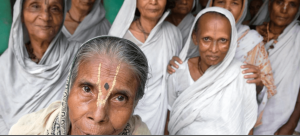
The widows who can’t return home
A tradition of persecution
Widows in India have always been subjected to rejection and persecution, with the practice of sati probably the oldest and clearest example. Outlawed by British colonisers in 1829, sati is an obsolete Indian funeral custom where a widow was expected to immolate herself on her husband’s pyre, or commit suicide in another way, shortly after his death. With her husband gone, the widow was supposed to have no reason to live.

The widows who can’t return home
Rebuilding a life
Arriving in Vrindavan, many widows are completely lost. They have to face the world alone, with no one to help them. Marginalized by society after being rejected by their families, they wait to die in a deep loneliness and cruel distress. But, little by little, welcomed in their widow communities, most manage to rebuild their lives and get out of their isolation.

The widows who can’t return home
Faith against all odds
Gayatri is performing puja (morning prayer) at the Meera Sahbagini ashram, which was established 60 years ago and is home to 220 widows.
“Every morning, we wake up at 5am. Some of us go to the banks of the Yamuna for washing and do a first puja ritual. Then, we return to the ashram, singing religious songs to worship Sri Krishna and [his partner] Radha.”
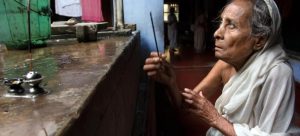
The widows who can’t return home
Solidarity and mutual aid
After singing bhajans (religious songs) and praying together, the women start their daily activities. They cook, either for themselves or in groups of two or three, and then eat together in their rooms or in the ashram’s corridors. Afterwards, they read religious books and pray. It is undeniable that their faith immensely helps them to face their difficulties each day.

The widows who can’t return home
The face of goodness
Lalita, 72, has lived at Meera Sahbhagni ashram for 12 years.
“I would never have thought that one day I would have had to beg for food. But when my husband died, I was 54 and I was thrown out of the house by my relatives. I had to live in the streets and then found a kind man who helped me to get a train ticket to Vrindavan. I came here and I never left.”
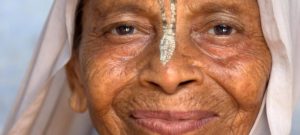
The widows who can’t return home
Fate breakers
Here, the women of the ashram stand on the banks of the Yamuna River at sunset for aarti (traditional daily prayers and celebrations). One was so happy to be there that she jumped into the water; the other women are helping her to get back to the shore.
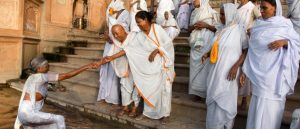
The widows who can’t return home
A merciless destiny
Tulsi, 68, is singing bhajans at the ashram. Originally from a village near Kolkata, her in-laws took her inheritance when her husband died. Tulsi was forced to move with her children to a very poor area, and soon one of her sons took her to Vrindavan on the pretext of worshiping Lord Krishna. After visiting the temples, he told her that it was better for her to stay in Vrindavan, even though she didn’t want to. He left and never came back. She’s now been at the ashram for 12 years.
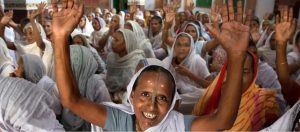
The widows who can’t return home
One soul, one life path
Shanti Padho Dashi is 91 years old and lives at Meera Sahbhagni ashram. She is the oldest resident of the ashram and comes from West Bengal. She came to Vrindavan 25 years ago.
As India becomes more progressive, the situation for widows is slowly becoming better. But the shame of widowhood is so strong and has existed for so long that it won’t disappear quickly, especially in traditional rural environments.

The widows who can’t return home
Raising awareness and tolerance
Dressed in white, widows are buying vegetables in the streets of Vrindavan. They have always been rejected by society; since they’re reputed to bring misfortune, some people even hide when they see a widow walking down the streets.
But in recent years, local NGOs, such as Sulabh International, have been working with the widows to not only provide financial support, but also lead numerous projects and media actions across the country to raise awareness and tolerance for these discriminated people.

The widows who can’t return home
Changing mentalities
Here, the widows at Meera Sahbhagni asham celebrate Holi, the festival of colour. Although orthodox traditions forbid widows from taking part in the celebrations, mentalities are changing and the widows have started to defy the bans.

The widows who can’t return home
Breaking free
Holi and its overall significance within Indian society is the perfect opportunity for widows to state loud and clear their claim to catharsis and respect. During Holi, social barriers get broken down and people feast together, regardless of differences in age, sex and status. It’s the time when the castes mingle, where the lower people have the right to insult those whom they’ve had to bow to throughout the year.

The widows who can’t return home
Hope for tomorrow
“Today I am happy to have all these women around me, I am not alone anymore”, said Prema, 60. “We have learnt to live together, to help each other. We became friends, true friends, as we all know what we’ve all been through. We look ahead, we try to never look back. We never talk about the past.”

The widows who can’t return home







